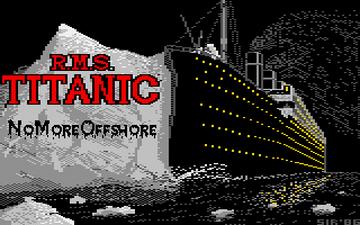http://www.citizen.org/cmep/article_redirect.cfm?ID=7104
Blind Faith: How Deregulation and Enron's Influence Over Government Looted Billions from Americans
Sen. Gramm, White House Must Be Investigated for Role in Enron's Fraud of Consumers and Shareholders
December 2001
Public Citizen's
Critical Mass Energy & Environment Program
Summary of Findings
- The combination of unregulated state wholesale electricity markets
and federal deregulation of commodity exchanges has removed
accountability and transparency from the energy sector, allowing
corporations to manipulate price and supply of electricity and natural
gas through the exercise of significant market power. California's
recent energy crisis and Enron's bankruptcy would have been impossible
under a regulated system. [This refers to the repeal of Glass-Steagall Act. See The Unravelling of America - Part I. Unfortunately, this deregulation was not limited to energy trading.]
- Enron developed mutually beneficial relationships with federal
regulators and lawmakers to support policies that significantly
curtailed government oversight of their operations.
- Enron's business model was built entirely on the premise that it
could make more money speculating on electricity contracts than it could
by actually producing electricity at a power plant. Central to Enron's
strategy of turning electricity into a speculative commodity was
removing government oversight of its trading practices and exploiting
market deficiencies to allow it to manipulate prices and supply. [Wall Street can do this, too.]
- Dr. Wendy Gramm, in her capacity as chairwoman of the Commodity
Futures Trading Commission (CFTC), exempted Enron's trading of futures
contracts in response to a request for such an action by Enron in 1992.
At the time, Enron was a significant source of campaign financing for
Wendy Gramm's husband, U.S. Senator Phil Gramm.
- Six days after she provided Enron the exemption it wanted, Wendy
Gramm resigned her position at the CFTC. Five weeks after her
resignation, Enron appointed her to its Board of Directors, where she
served on the Board's Audit Committee. Her service on the Audit
Committee made her responsible for verifying Enron's accounting
procedures and other detailed financial information not available to
outside analysts or shareholders.
- Following Wendy Gramm's appointment to Enron's board, the company
became a significant source of personal income for the Gramms. Enron
paid her between $915,000 and $1.85 million in salary, attendance fees,
stock option sales and dividends from 1993 to 2001. The value of Wendy
Gramm's Enron stock options swelled from no more than $15,000 in 1995 to
as much as $500,000 by 2000.
- Phil Gramm is the second largest recipient in Congress of Enron campaign contributions, receiving $97,350 since 1989.
- Days before her attorneys informed Enron in December 1998 that Wendy
Gramm's control of Enron stock might pose a conflict of interest with
her husband's work, she sold $276,912 worth of Enron stock.
- Enron spent $3.45 million in lobbying expenses in 1999 and 2000 to deregulate the trading of energy futures, among other issues.
- In December 2000, Phil Gramm helped muscle a bill through Congress
without a committee hearing that deregulated energy commodity trading.
This act allowed Enron to operate an unregulated power auction --
EnronOnline -- that quickly gained control over a significant share of
California's electricity and natural gas market. [Gramm's bill was Gramm-Leach-Bliley Act: allowing commercial banks,
investment banks, and insurers to merge (which would have violated
antitrust laws under Glass-Steagall).]
- Phil Gramm's legislation was in conflict with the explicit
recommendations of the President's Working Group on Financial Markets,
which is composed of representatives from the Department of Treasury,
the Board of Governors of the Federal Reserve, the Securities and
Exchange Commission and the Commodity Futures Trading Commission. The
Working group expressly recommended against deregulating energy commodity trading because the traders would be in strong positions to manipulate prices and supply.
- From June 2000 through December 2000 -- prior to the bill's passage
-- California experienced significant price spikes but only one Stage 3
emergency (requiring "rolling blackouts"). After passage of
Gramm's energy commodity deregulation bill in December 2000, Stage 3
emergencies increased from one to 38 until federal regulators helped end
the crisis by imposing price controls in June 2001. Phil Gramm's
legislation, for which Enron was the primary lobbyist, allowed Enron's
unregulated energy trading subsidiary to manipulate supply in such a way
as to threaten millions of California households and businesses with
power outages for the sole purpose of increasing the company's profits.
- Because of Enron's new, unregulated power auction, the company's
"Wholesale Services" revenues quadrupled -- from $12 billion in the
first quarter of 2000 to $48.4 billion in the first quarter of 2001.
This remarkable revenue increase came on top of the record revenue gain
that Enron posted from 1999 to 2000, when full-year "Wholesale Services"
revenues increased from $35.5 billion to $93.3 billion -- a 163 percent
increase.
- Investigations by state and federal officials concluded that power
generators and power marketers intentionally withheld electricity,
creating artificial shortages in order to increase the cost of power.
- Enron took advantage of lax oversight following deregulation and
formed a complicated web of more than 2,800 subsidiaries -- more than 30
percent (874) of which were located in officially designated offshore
tax and bank havens.
- President Bush's presidential campaign received significant financial support from Enron ($1.14 million).
- Upon assuming office in 2001, Bush promptly scrapped plans put into
place by former President Bill Clinton to significantly limit the
effectiveness of these countries as tax and bank regulation havens. This
action came at the height of high West Coast energy prices, probably
allowing Enron to siphon billions to its offshore accounts.
- At the same time, the Bush administration and certain members of
Congress waged a legislative and public relations campaign against the
imposition of federal price controls in the Western electricity market.
Such price controls remove the ability of companies exercising
significant market share to price-gouge by effectively re-regulating the
market. Bush's opposition to price controls unnecessarily extended the
California energy crisis and cost the state billions of dollars.
- When federal regulators finally imposed strict, round-the-clock
price controls over the entire Western electricity market on June 19,
2001, companies operating power auctions (like Enron) no longer had the
ability to charge excessive prices and no longer had incentive to
manipulate supply.
- While price controls clearly saved California, Enron suffered
because it could no longer manipulate the market and price-gouge
consumers. With no significant asset ownership to offset its losses,
Enron's unregulated power auction quickly accumulated massive debts. At
the same time, the curtailed revenue flow made it more difficult for
executives and members of the Board to conceal the firm's accounting
gimmicks. Amid the turmoil, CEO Jeff Skilling resigned in August. But
shareholders and federal regulators did not learn of the severity of
Enron's financial trouble until November 2001. At this time, Enron's top
executives continued to receive significant bonuses.
- Due to Wendy Gramm's position on Enron's Audit Committee, she had
intimate knowledge of Enron's financial structure and had access to
sensitive financial information not available to Wall Street analysts or
average shareholders. It is therefore probable that she knew of Enron's
possibly fraudulent practices for some time and that her husband would
have known as well. Enron's 874 tax haven subsidiaries allowed Enron to
funnel billions of dollars to offshore accounts.
- The Gramms' close involvement with Enron's corporate and legislative activities, the Gramms' possible knowledge and/or connection to criminal misconduct relating to Enron's collapse, and the effects of Enron's layoffs and other economic impacts on Senator Gramm's constituents may have been the leading factor in Gramm's decision on September 4 not to seek re-election to the Senate in 2002.




